Is Spain’s Digital Nomad Visa Really for Freelancers?
Freelancers can apply — but only if their contracts, income, and structure meet Spain’s real-world requirements.
Spain’s Digital Nomad Visa has quickly become one of the most talked-about residence permits in Europe. Introduced in 2023 under Spain’s Startup Law, the visa offers remote workers a chance to live legally in Spain while continuing to work for clients or employers abroad.
But a growing number of professionals are asking: Is the Spanish Digital Nomad Visa really suitable for freelancers?
Legally, freelancers are eligible. But in practice, the visa favors one type of applicant above all: contractors with stable, documentable contracts from foreign companies. Traditional freelancers, e-commerce owners, and traders often find the visa difficult — if not impossible — to access under the current requirements.
In this post, we break down who qualifies, who struggles, and what alternatives are available if you don’t fit the ideal profile.
Who Can Apply for the Spanish Digital Nomad Visa?
Spain’s Digital Nomad Visa is designed for international teleworkers — a category that includes:
- Employees of companies located outside of Spain
- Self-employed professionals (freelancers and contractors) working remotely for clients abroad
This broad legal definition has led many freelancers to believe they qualify. But the documentation and income requirements reveal that the visa is tailored to people with a more structured remote work setup.
Freelancers vs. Contractors: Why the Difference Matters
Although both are considered self-employed, freelancers and contractors typically operate differently:
- Freelancers often work with multiple clients on a short-term basis, have irregular income, and may lack formal contracts.
- Contractors usually have long-term service agreements with one or two companies, often with consistent income and clearly defined terms.
This difference is crucial because Spain’s Digital Nomad Visa process is documentation-heavy. Contractors are simply better positioned to meet the requirements.
Why Freelancers Struggle to Qualify
Here are the main obstacles that freelancers face when applying for Spain’s Digital Nomad Visa:
- Proving a Stable Professional Relationship: Applicants must show they have been working with a foreign company for at least three months, with a formal contract in place. For freelancers who work through platforms or take on sporadic gigs, this is often difficult to document.
- Providing a Certificate of Good Standing: One of the lesser-known requirements is that your client (the foreign company) must provide a certificate of good standing, showing the business has been operational for more than one year. This certificate must be apostilled or legalized.
What About E-Commerce Owners and Online Traders?
Many digital nomads run their own online stores or invest in markets. Unfortunately, e-commerce owners and traders often do not qualify under the Digital Nomad Visa rules.
If you sell products online you are not technically offering remote services to a foreign company — you’re running a business. Since there is no identifiable foreign client or employer, and no service contract to present, your application may be rejected.
Similarly, traders and crypto investors have no clients, no contracts, and often no stable income stream. Spanish immigration authorities are unlikely to consider this kind of activity eligible for the visa.
Who Is the Ideal Candidate for the Digital Nomad Visa in Spain?
The most successful applicants typically meet the following conditions:
- They work remotely for a foreign company
- They have a formal contract or ongoing professional relationship for at least 3 months
- Their client can provide a certificate of incorporation or certificate of good standing
- They earn a consistent monthly income that meets the required threshold
- At least 80% of their income is generated from outside Spain
In short, the Spanish Digital Nomad Visa is best suited to remote employees and contractors who can show a clear, stable, and well-documented work arrangement.
Alternatives for Freelancers and Entrepreneurs Who Don’t Qualify
If your freelance or business setup doesn’t align with the digital nomad visa requirements, Spain offers other legal pathways to live and work in the country:
- Entrepreneur Visa: For entrepreneurs launching a business in Spain, especially in tech, innovation, or scalable digital services.
- Self-Employment Visa: For traditional freelancers planning to operate in the Spanish market. This visa involves presenting a detailed business plan and is typically more demanding but still viable.
- Non-Lucrative Visa: Ideal for those with passive income or savings. Work is not allowed under this visa, but it provides legal residency in Spain.
Each alternative has its own set of requirements, but they may offer more flexibility depending on your professional and financial situation.
Final Thoughts: A Great Visa, But Not for Everyone
Spain’s Digital Nomad Visa is a strong option for contractors and remote employees — but not an easy fit for everyone who works online.
While freelancers are not excluded by law, the visa is clearly structured to benefit applicants with formal, stable, and verifiable contracts. E-commerce professionals, traders, and gig-based freelancers will likely need to restructure their business model or consider other immigration paths.

